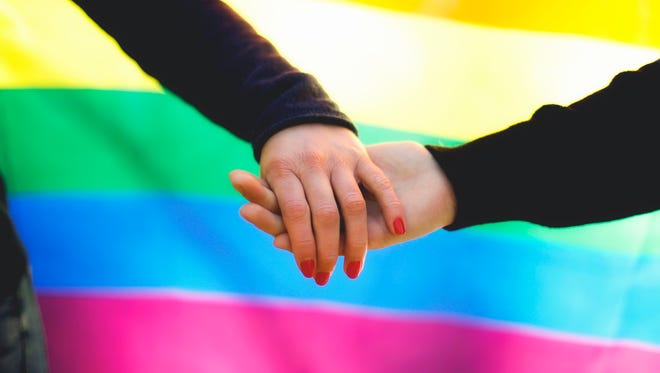Should the definition of infertility be more inclusive?

Infertility is defined as the inability to conceive after 12 months for those under 35. The definition speaks to the long-held picture of a heterosexual couple struggling to conceive a child, but in this day and age when singles and same-sex couples are going through many of the same treatments to conceive, should the definition be more inclusive?
Infertility treatments like in vitro fertilization are often viewed as "elective" procedures and seldom covered under insurance, so couples and singles can amass thousands of dollars in out-of-pocket costs in their pursuit of having a biological child. Only eight states across the country require carriers to cover IVF in their plans, according to Resolve, a national organization fighting for states and employers to expand coverage of infertility treatments. And some state laws make it difficult for same-sex couples to get coverage.
"A lot of these conversations around ART (Assisted Reproductive Technology) and surrogacy aren’t around the science, but the conversation around social issues —who people think should be parents and how people think families should be created." Emily Hecht-McGowan, Esq., the chief policy officer at the Family Equality Council, said.
In New York, the state Department of Financial Services unveiled new guidelines Wednesday, that require health insurers to provide coverage for fertility treatment regardless of marital status or sexual orientation.
The new guidelines are based on the state's interpretation of "infertility." State law requires insurers to cover treatment for infertility and use the American Society for Reproductive Medicine's definition of the term to determine when fertility-treatment coverage kicks in. The society defines infertility as the “failure to achieve a successful pregnancy after 12 months or more of appropriate, timed, unprotected intercourse or therapeutic donor insemination.”
More coverage:
Myths about IVF, surrogacy and adoption
Reason for infertility: 'We don’t have a uterus, we need to find friends who do'
How faith communities view different fertility treatments
NY requires infertility coverage for all
But that definition is silent on marital status and sexual orientation, which the state's new guidelines attempt to clear up.
While the guidelines clear up confusion over whether same-sex couples could be excluded, it doesn't mean seeking treatment will be easy for a same-sex female couple.
Hecht-McGowan said same-sex couples cannot have a child without some type of fertility treatment, yet in states that offer coverage they still have to prove they are infertile with round-after-round of artificial insemination before coverage kicks in.
“Most insurance companies interpret [infertility] in a way that you have to show us you are infertile for a period of time before we trigger your need for the benefit, but same sex couples always have to engage in some medically supervised exposure to sperm, which in some cases is thousands of dollars out of pocket," Hecht-McGowan said.
For same-sex couples, fertility treatment coverage may depend on how insurance policies are interpreted.
Nanette Elster, vice president of Spence and Elster, a Chicago law firm specializing in fertility law, said if a policy's coverage follows a medical definition of infertility, same-sex couples may be excluded by way of their biological makeup. But if it's an on-the-face definition of infertility, the case could be made that a same-sex couple, naturally unable to conceive a child together, may qualify for treatment. Adding to that quandary is the possibility a same-sex couple also could be medically infertile.
"The vast majority of these statutes were enacted well before same-sex marriage was even possible," Elster explained.
Sixty-eight percent of participants in a recent Reproductive Medicine Associates of New Jersey survey said members of the LGBT community should have equal access to reproductive care. But in many cases they are at a disadvantage from the get-go, according to Hecht-McGowan, whose organization offers resources and advocates for policy changes affecting gay and lesbian families.
"[Lesbian couples] will never be treated “equally” because there will always be an additional financial burden to prove they are infertile," she said. "To expect a lesbian couple to get pregnant on their own — it’s not going to happen."
In the past few years, some have questioned whether the definition of infertility should be changed to "disability," which might allow coverage for same-sex couples and singles who are unable to procreate because they do not have a partner.
Adam Blum, founder of the Gay Therapy Center, said calling a same-sex couple “infertile” could be offensive.
“That’s a medical term that is problem-focused,” Blum said. “That’s not how we think of it as gay people. We aren’t having a medical problem. We don’t expect to have a child to our own bodies.”
Blum said challenges often arise in terms of support. Most younger same-sex couples he sees expect to have children, he said, but will not have the blessing of their parents.
"Gay people are the only minority that consistently feel rejection from their own family," Blum said. "They are typically different than their parents."
Same-sex couples also face criticism "that can turn judges, legislators, professionals, and the public against them, sometimes resulting in negative outcomes, such as loss of physical custody, restrictions on visitation, and prohibitions against adoption," as the American Psychological Association points out.